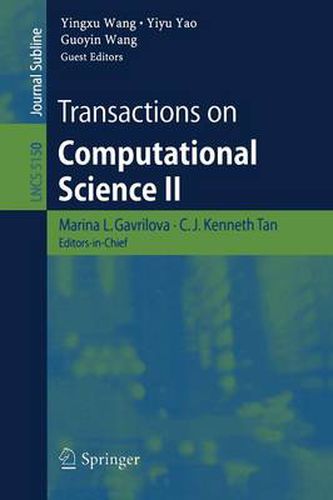Readings Newsletter
Become a Readings Member to make your shopping experience even easier.
Sign in or sign up for free!
You’re not far away from qualifying for FREE standard shipping within Australia
You’ve qualified for FREE standard shipping within Australia
The cart is loading…






This title is printed to order. This book may have been self-published. If so, we cannot guarantee the quality of the content. In the main most books will have gone through the editing process however some may not. We therefore suggest that you be aware of this before ordering this book. If in doubt check either the author or publisher’s details as we are unable to accept any returns unless they are faulty. Please contact us if you have any questions.
The denotational and expressive needs in cognitive informatics, computational intelligence, software engineering, and knowledge engineering have led to the development of new forms of mathematics collectively known as denotational mathematics. Denotational mathematics is a category of mathematical structures that formalize rigorous expressions and long-chain inferences of system compositions and behaviors with abstract concepts, complex relations, and dynamic processes. Typical paradigms of denotational mathematics are concept algebra, system algebra, Real-Time Process Algebra (RTPA), Visual Semantic Algebra (VSA), fuzzy logic, and rough sets. A wide range of applications of denotational mathematics have been identified in many modern science and engineering disciplines that deal with complex and intricate mathematical entities and structures beyond numbers, Boolean variables, and traditional sets. This issue of Springer’s Transactions on Computational Science on Denotational Mathematics for Computational Intelligence presents a snapshot of current research on denotational mathematics and its engineering applications. The volume includes selected and extended papers from two international conferences, namely IEEE ICCI 2006 (on Cognitive Informatics) and RSKT 2006 (on Rough Sets and Knowledge Technology), as well as new contributions. The following four important areas in denotational mathem- ics and its applications are covered: Foundations and applications of denotational mathematics, focusing on: a) c- temporary denotational mathematics for computational intelligence; b) deno- tional mathematical laws of software; c) a comparative study of STOPA and RTPA; and d) a denotational mathematical model of abstract games.
$9.00 standard shipping within Australia
FREE standard shipping within Australia for orders over $100.00
Express & International shipping calculated at checkout
This title is printed to order. This book may have been self-published. If so, we cannot guarantee the quality of the content. In the main most books will have gone through the editing process however some may not. We therefore suggest that you be aware of this before ordering this book. If in doubt check either the author or publisher’s details as we are unable to accept any returns unless they are faulty. Please contact us if you have any questions.
The denotational and expressive needs in cognitive informatics, computational intelligence, software engineering, and knowledge engineering have led to the development of new forms of mathematics collectively known as denotational mathematics. Denotational mathematics is a category of mathematical structures that formalize rigorous expressions and long-chain inferences of system compositions and behaviors with abstract concepts, complex relations, and dynamic processes. Typical paradigms of denotational mathematics are concept algebra, system algebra, Real-Time Process Algebra (RTPA), Visual Semantic Algebra (VSA), fuzzy logic, and rough sets. A wide range of applications of denotational mathematics have been identified in many modern science and engineering disciplines that deal with complex and intricate mathematical entities and structures beyond numbers, Boolean variables, and traditional sets. This issue of Springer’s Transactions on Computational Science on Denotational Mathematics for Computational Intelligence presents a snapshot of current research on denotational mathematics and its engineering applications. The volume includes selected and extended papers from two international conferences, namely IEEE ICCI 2006 (on Cognitive Informatics) and RSKT 2006 (on Rough Sets and Knowledge Technology), as well as new contributions. The following four important areas in denotational mathem- ics and its applications are covered: Foundations and applications of denotational mathematics, focusing on: a) c- temporary denotational mathematics for computational intelligence; b) deno- tional mathematical laws of software; c) a comparative study of STOPA and RTPA; and d) a denotational mathematical model of abstract games.